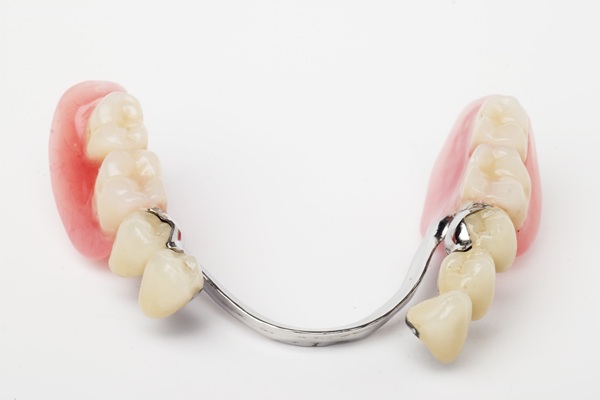Does Periodontal Disease Cause Gum Infections?

Periodontal disease is an infection of the gum tissues and the jawbone supporting the teeth. It is a prevalent oral condition that does not heal on its own without professional intervention. The condition, which starts as minor inflammation of the gums, can cause loose teeth and eventual tooth loss if left untreated.
Overview of periodontal disease
Gum disease is the leading cause of tooth loss in adults. The infection is usually painless and progresses so gradually that the patient may not even know that they have the condition. Gum disease is caused by plaque, a bacterial film that forms on the teeth. These bacteria thrive on the food particles in the mouth, creating toxic materials that eventually damage the teeth, the gums and the bones around the teeth.
In the initial stage of periodontal disease (gingivitis), the gums may be inflamed and bleed. At this stage, the disease is still reversible and can be treated with a deep dental cleaning and a daily oral hygiene routine. When gum disease reaches its advanced stages, the infection spreads through the gum tissues to the bone, causing damages. Without treatment, tooth loss will occur.
Common signs of gum disease
When the following signs occur, gum disease is usually present and needs to be treated immediately:
- Gum bleeding when brushing
- Gum recession
- Red, inflamed or swollen gums
- Persistent bad breath
- Pus in periodontal pockets
- Loose teeth
- Change in bite alignment
Risk factors of gum disease
Although bacterial plaque is the main cause of periodontal disease, certain risk factors can compromise gum health and make it vulnerable to infection. Such factors include stress, smoking, poor nutrition, certain drugs, diabetes, hormonal factors, genetic factors and teeth grinding or clenching. The dentist may recommend more frequent checkups for patients with these risk factors.
Treating periodontal disease
If the gum disease has damaged the gum and bone tissues around the teeth, ordinary cleaning will not be adequate to stop the infection in its tracks. The dentist will perform periodontal scaling, which is a more thorough and intensive cleaning process than regular cleaning. The dentist will use special dental tools to remove the plaque and tartar responsible for the infection below the gum. Also, root planing will be done to smooth root surfaces to promote gum healing and allow it to reattach to the tooth.
If the deep pockets of infection remain after scaling and root planing, corrective gum surgery or regenerative procedures may be required. The treatment aims to repair the damages by reshaping the gums or promoting the regeneration of new healthy bones and gums.
Preventing gum infection
It is possible to prevent gum disease and infection through proper oral hygiene and regular checkups with the dentist. Being proactive with preventive care can help improve dental health and ultimately, overall wellbeing. After treatment, good oral care is important to prevent the reoccurrence of infection.
In conclusion
Periodontal disease can have devastating consequences if left untreated. Patients need to watch out for signs of the disease and take their appointments with the dentist seriously. These routine checkups allow the dentist to examine the gums and provide treatment if there is an infection.
Request an appointment here: https://lincroftvillagedental.com or call Lincroft Village Dental Care at (732) 842-5005 for an appointment in our Lincroft office.
Check out what others are saying about our dental services on Yelp: Periodontics in Lincroft, NJ.
Recent Posts
Dental implants have become a popular method for dental restoration and replacement. They are offering people a chance to chew naturally and smile confidently again, and with the help of periodontist, a person can achieve this!While a lot of people do visit their dentists for dental implants, it can be helpful to visit a periodontist…
Red, inflamed or swollen gums are often the sign of gingivitis, the first stage of periodontal disease or worse still, periodontitis. Plaque is the most common cause of the condition, but there are several others that can cause gum infection.The following are some of the common ways to get gum disease:Gum disease is usually caused…
Do you think you might have the beginnings of periodontal disease? Wondering what to do about it if you do? The sooner you address any dental problems by making an appointment with an experienced dentist, the better chances you are going to have of reversing those dental problems.
A periodontist has one primary goal — to save patients’ permanent teeth. If someone needs a tooth extracted, this dental professional has the advanced training to replace it. Mainly, they offer dental implants to patients who are good candidates. While it might sound odd that a periodontist pulls teeth, it is for the health of…


